I was 15 years old when I watched Nicky Hayden slide, with impossible style, into the lead of the AMA 600 Supersport race at Mid-Ohio, past his brother Tommy and toward an eventual championship. I looked for a clip on the internet of that pass, but truth be told I don't need it. It's long been burned into my brain. He was in high school just like I was, so it almost felt like I could relate to him. But he was infinitely cooler, for obvious reasons. That's the Nicky Hayden I always fall back on remembering—the leopard-print hair and flamboyant riding matched with deliberate and authentic answers to questions in a down-home drawl.
When the AMA Championship came to my home track in Loudon, NH, I stood up against the banners at the edge of his garage and listened to him talk to his team about bike setup, brow furrowed. Serious. He never seemed satisfied with how fast he was going, which I thought was weird considering how incomprehensible his speed on a motorcycle was to me. In a few years he was on the world stage, that same cool older kid from high school. Teammates with Valentino Rossi, leaving rubber and knee pucks and autographs at all of the racetracks I could only play in video games. Cathedrals of the sport—Suzuka, Mugello, Phillip Island, Donnington Park.
And there were countless AMA Superbike fans who felt the same way—that Nicky was a blue-collar hero, a kid from down the street, son of a used-car-lot owner who still wanted to ride dirt bikes and go to prom. He was America’s son, stepping into the glitzy atmosphere of MotoGP, rife with prima donnas and Monaco mansions. And dammit he held his own. He slid and crashed and wrangled the fiercest motorcycles in the world with the best on the planet. Even if he didn’t dominate, he did what blue-collar heroes do, and that’s work hard until he made it to the top. World Champion. Legend status.
Perhaps more impressive to me than his accomplishments on the track is his record of character in the industry. While Nicky was racing for Ducati Corse, I asked an engineer at a Ducati event who he liked better, Valentino Rossi or Nicky Hayden. He looked tormented. He explained that Rossi is a treasure in Italy and, as an Italian, part of him always roots for Valentino. "But," he said, with a smile on his face, squinting his eyes shut and clenching his fists, "Nicky is just such a cool guy." I could see the same glint of emotion in his eye that I had watching the interviews of AMA 600 Supersport all those years ago. So cool. In a matter-of-fact way.
When my career put me behind the keyboard of a computer instead of the bars of a MotoGP bike, I eventually met Nicky. He tolerated my interview questions and took photos with me, just like he did thousands of times with fans and journalists alike. Not only that, he made me feel welcome. He didn't try too hard or pretend that we were going to be friends forever—he just acted like a normal person. Not better or worse. Polite. Genuine. Which, I think, is why Japanese school girls and Italian engineers and American tradesman and everyone in between, loved Nicky. Even now, I feel compelled to refer to him by his first name, even though I was not close to him. That is, in part, his doing.
His accident is tragic for a thousand reasons, none of which matter in the context of being a brother, son, uncle, and friend. To most of us he was a hero, a role model, and an inspiration. Passing the way he did feels painfully avoidable, and almost ironic. And plebeian. It’s hard to imagine the dull regularity of riding a bicycle taking away from us such an extraordinary talent and well-liked person. Beyond that I don’t know what to write, except that I feel lucky—to have had him to root for as an American, to look up to as a motorcyclist, and to have shaken hands with as a human being.










/cloudfront-us-east-1.images.arcpublishing.com/octane/IY4YDFVIVQ6ZTO3YHACGZWZG2E.jpg)
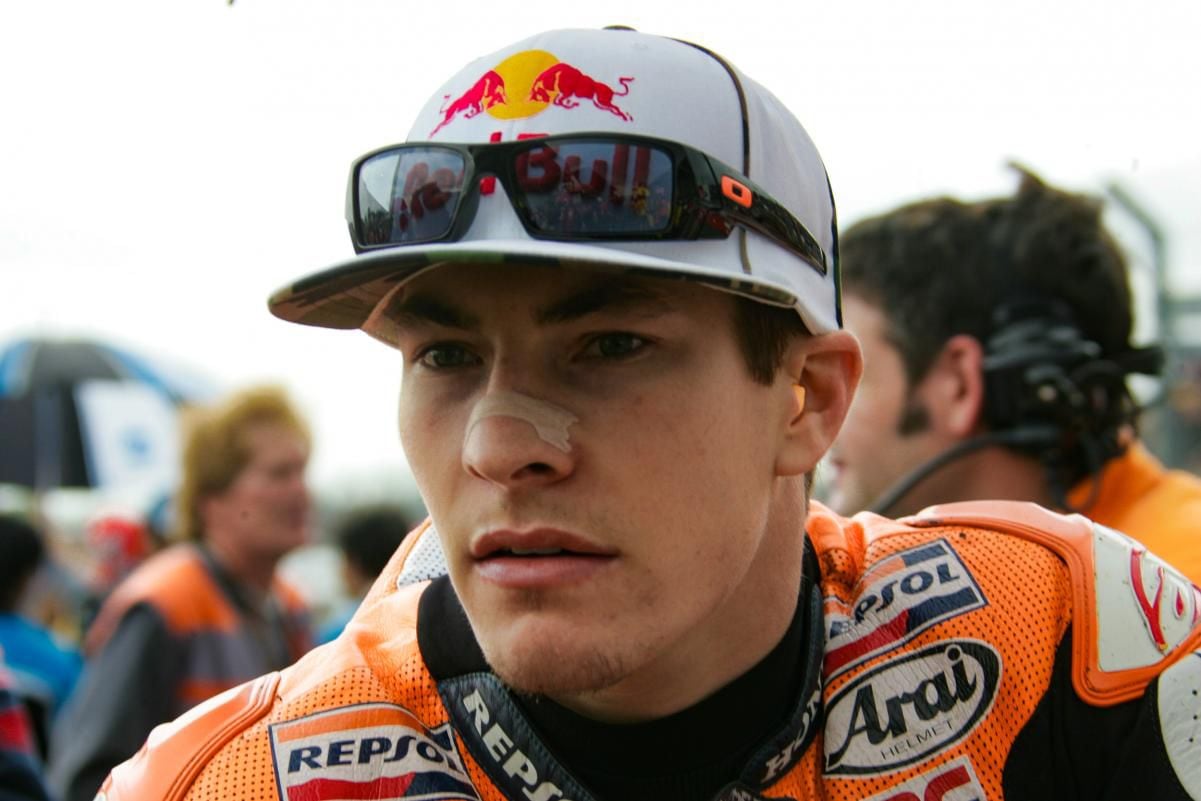
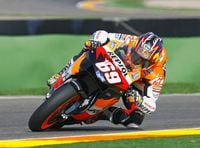
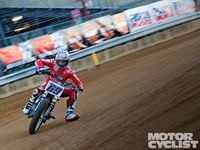
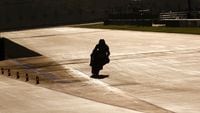
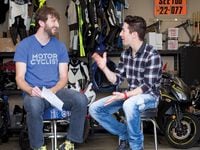
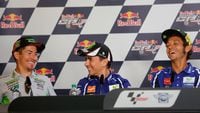
/cloudfront-us-east-1.images.arcpublishing.com/octane/VZZXJQ6U3FESFPZCBVXKFSUG4A.jpg)
/cloudfront-us-east-1.images.arcpublishing.com/octane/QCZEPHQAMRHZPLHTDJBIJVWL3M.jpg)
/cloudfront-us-east-1.images.arcpublishing.com/octane/HXOUJXQWA5HBHGRO3EMJIGFMVI.jpg)

/cloudfront-us-east-1.images.arcpublishing.com/octane/3TIWWRV4JBBOLDVGRYECVVTA7Y.jpg)
/cloudfront-us-east-1.images.arcpublishing.com/octane/KIX5O23D5NAIBGFXBN3327DKZU.jpg)
/cloudfront-us-east-1.images.arcpublishing.com/octane/7GJYDUIPXRGMTMQKN6ONYOLBOU.jpg)
/cloudfront-us-east-1.images.arcpublishing.com/octane/MUQLOVLL2ZDGFH25ILABNBXKTI.jpg)
/cloudfront-us-east-1.images.arcpublishing.com/octane/TNOU5DNE2BC57MFPMGN2EIDXAM.jpg)
/cloudfront-us-east-1.images.arcpublishing.com/octane/GTCXACQGJ5HAPDTGWUQKDEH44E.jpg)
/cloudfront-us-east-1.images.arcpublishing.com/octane/S35YGSEMEZB4BLTDJTSZPF4GLA.jpg)
/cloudfront-us-east-1.images.arcpublishing.com/octane/5UOT6HPX2JFMRJAX6EH45AR4MQ.jpg)
/cloudfront-us-east-1.images.arcpublishing.com/octane/OKWOJWAKP5EP3OACCRRWPCIX2Q.jpg)
/cloudfront-us-east-1.images.arcpublishing.com/octane/2WF3SCE3NFBQXLDNJM7KMXA45E.jpg)
/cloudfront-us-east-1.images.arcpublishing.com/octane/G4MG6OUCJNBSHIS2MVVOTPX65E.jpg)
/cloudfront-us-east-1.images.arcpublishing.com/octane/IIGGWFOTOJGB7DB6DGBXCCMTDY.jpg)
/cloudfront-us-east-1.images.arcpublishing.com/octane/QSTCM6AVEZA5JJBUXNIQ3DSOF4.jpg)
/cloudfront-us-east-1.images.arcpublishing.com/octane/U4I7G625B5DMLF2DVIJDFZVV6M.jpg)
/cloudfront-us-east-1.images.arcpublishing.com/octane/B6XD6LS6IVCQPIU6HXDJSM3FHY.jpg)
/cloudfront-us-east-1.images.arcpublishing.com/octane/ICL63FEDDRDTTMINYICCEYGMDA.jpg)
/cloudfront-us-east-1.images.arcpublishing.com/octane/FCGZHQXRBZFLBAPC5SDIQLVF4I.jpg)
/cloudfront-us-east-1.images.arcpublishing.com/octane/WNOB6LDOIFFHJKPSVIWDYUGOPM.jpg)
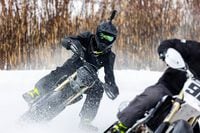
/cloudfront-us-east-1.images.arcpublishing.com/octane/X33NU3E525ECRHXLNUJN2FTRKI.jpg)